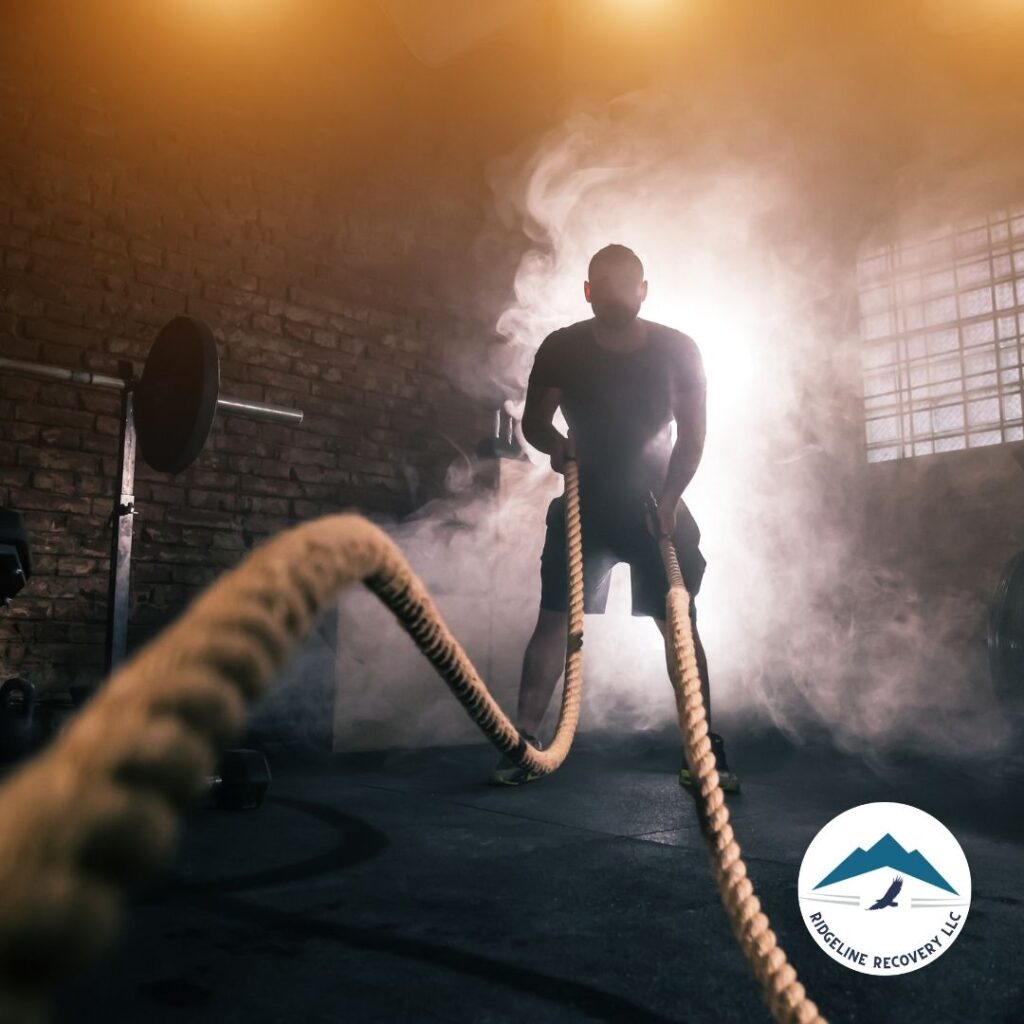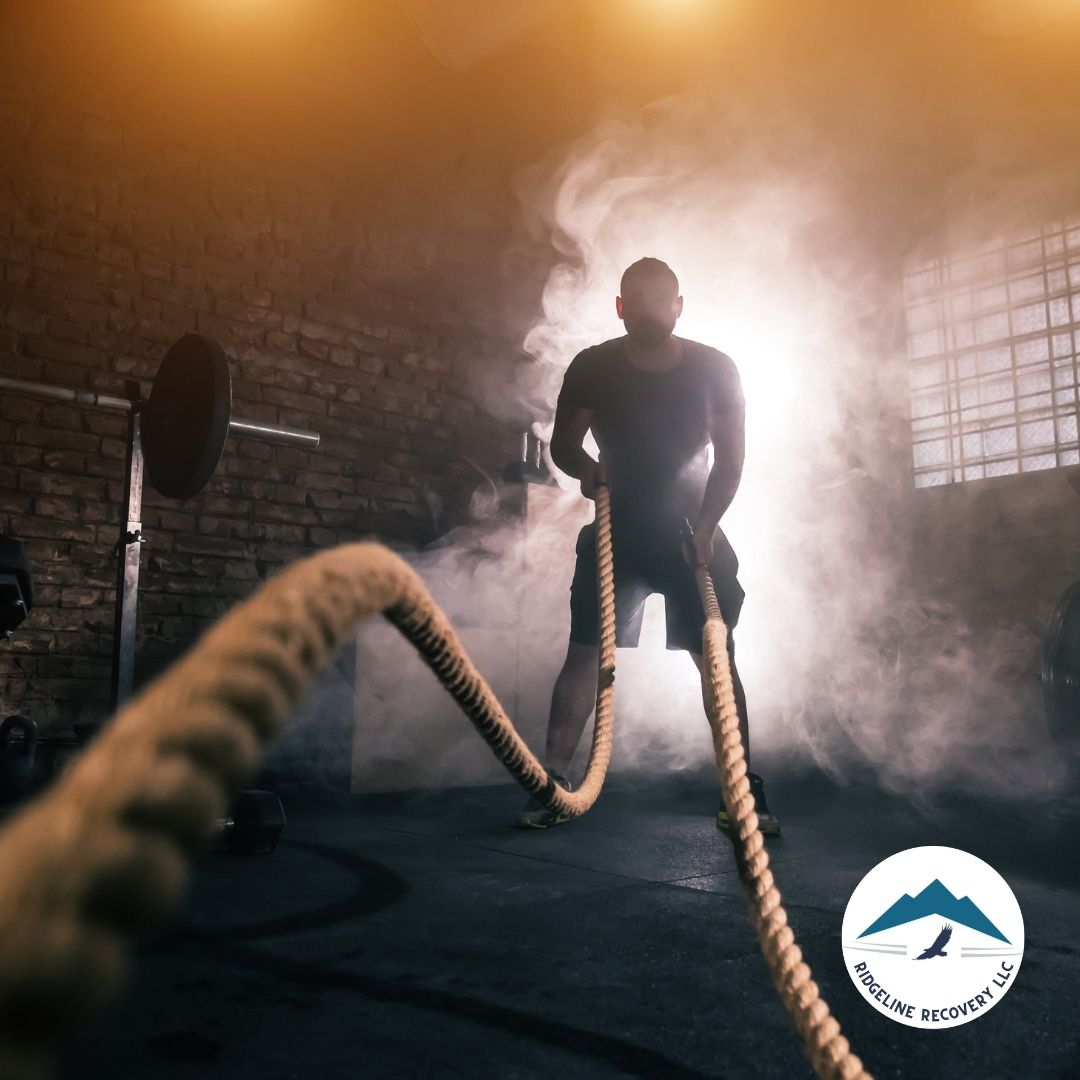Here’s the deal: Addiction recovery Columbus isn’t just about quitting a substance. It’s about rewiring your brain, changing your habits, and building a life you don’t feel the need to escape from.
And that’s where therapy comes in.
Addiction Recovery Columbus has no shortage of therapy options—everything from one-on-one sessions to group programs, from mental health clinics near me to addiction therapy services. But which one’s for you? How do you make sure you’re not just quitting but actually healing?
Let’s break this down.
Why Therapy Is a Game-Changer in Addiction Recovery Columbus
First question: Why can’t I just quit on my own?
Because addiction isn’t just physical—it’s psychological. Therapy doesn’t just deal with the “don’t use” part. It tackles the root causes:
- Why did you start using in the first place?
- What’s keeping you stuck?
- How do you rebuild your mental and emotional resilience?
Think of therapy as the glue that holds your recovery together. Sure, detox cleans your system, but therapy rewires the habits and thinking that led to addiction in the first place.
The Connection Between Therapy and Long-Term Sobriety
Here’s what most people get wrong:
They think sobriety is the finish line.
But if you’ve ever been through the cycle—quitting, relapsing, feeling defeated—you know that the finish line keeps moving. Therapy ensures you don’t just quit for now—you quit for good.
How? By focusing on three things:
- Breaking the Addiction Cycle: It helps you recognize triggers, whether it’s stress, boredom, or trauma.
- Dealing with Withdrawal: Therapy teaches you how to manage symptoms like protracted withdrawal without falling back into old patterns.
- Building a New Identity: Because let’s face it—you’re not “not an addict.” You’re becoming someone new.
Types of Therapy in Addiction Recovery Columbus
You’ve got options. Addiction Recovery Columbus has some of the best therapy programs tailored to fit your life.
Individual Therapy
This is where the real work happens. It’s just you and a mental health therapist near me, digging into what makes you tick.
You’ll explore:
- Your emotional triggers.
- How to replace harmful habits with healthy ones.
- Coping mechanisms for everyday stress.
Group Therapy
Ever felt like no one gets it? Group therapy fixes that. Sitting in a room with people who’ve been through the same stuff is powerful.
Pro tip: Check out programs like NA What Is or AA Alternatives for a structured group setting.
Family Therapy
Addiction doesn’t just affect you—it affects everyone around you. Therapy for families is like hitting the reset button on your relationships.
Your family learns:
- How to support you without enabling you.
- Healthy boundaries.
- What recovery looks like for everyone involved.
Vivitrol Clinics: A Secret Weapon in Recovery

Ever heard of Vivitrol?
It’s a medication-assisted treatment that reduces cravings and blocks the effects of alcohol or opioids. Finding a Vivitrol clinic near me in Columbus could be a game-changer, especially if cravings have been your Achilles’ heel.
Here’s how it works:
- You get an injection once a month.
- It curbs cravings without the risk of addiction.
- It pairs perfectly with therapy.
How Mental Health Services Boost Recovery
Let’s not sugarcoat it: Addiction and mental health go hand in hand.
If you’re not addressing the anxiety, depression, or trauma behind your addiction, you’re missing half the battle. Columbus offers a ton of options, like:
- Mental health hospitals near me for crisis situations.
- Outpatient services at mental health clinics near me for ongoing support.
- Specialized care from a mental health counselor near me to work on trauma or mood disorders.
Rehab Options in Columbus: Which One’s Right for You?
Inpatient Rehab Alcohol Programs
If you need to step away from your environment completely, this is your best bet.
- You’ll have 24/7 medical and emotional support.
- Programs address severe cases, including DTS in alcohol withdrawal.
Outpatient addiction Recovery Columbus
Need flexibility? Outpatient care for alcohol lets you work on recovery without putting your life on hold.
What’s included?
- Outpatient alcohol therapy sessions.
- Access to support groups for families of drug addicts.
- Education on topics like what is alcohol-related dementia or long-term side effects of Ambien.
Breaking Down the Cost of Recovery
Here’s the truth: Recovery doesn’t have to cost a fortune.
Columbus offers a mix of high-end and affordable options:
- Rehabs in Ohio for state-funded or sliding scale programs.
- Nonprofits like Recovery Resources Cleveland OH that provide free support.
- Programs with transparent rehab prices, so you know what you’re getting.
Addressing Common Concerns About Addiction Therapy
What if I don’t feel ready?
You’re never going to feel 100% ready. Start now. The right therapy will meet you where you are.
Is Gabapentin a Narcotic Drug?
No, but it’s often used off-label to manage withdrawal symptoms.
Can therapy really help with cravings?
Yes, especially when paired with medical options like Vivitrol.
12-Step Programs: Are They Still Relevant?
Programs like What is the Twelve Step Program or NA 3rd Step Prayer aren’t for everyone. But their core principles—accountability, community, and spiritual growth—are timeless.
If traditional 12-step doesn’t click for you, Columbus offers alternatives:
- Mindfulness-based relapse prevention.
- Secular recovery programs.
- Therapy-based approaches that focus on mental health.
Signs It’s Time to Seek Help
Not sure if therapy’s for you? Look for these signs:
- You’ve tried quitting but can’t stay sober.
- You’re showing signs of addiction to Adderall or other substances.
- Your addiction is affecting your health, relationships, or work.
- You’ve been involved in Ohio arrests related to substance abuse.
Addressing Root Causes Through Therapy
Here’s the truth: Addiction doesn’t happen in a vacuum.
It’s often the result of deeper, underlying issues—whether it’s past trauma, mental health struggles, or even genetic predisposition. Therapy helps you unearth these root causes so you can tackle them head-on.
Polysubstance Addiction
Let’s say you’re not just dealing with one substance. Maybe it’s alcohol and prescription pills or something like opioids and designer drugs.
Therapy for polysubstance addiction focuses on managing the complexities of multiple dependencies, offering strategies to prevent cross-addiction.
This might include:
- Learning how to handle withdrawal symptoms like protracted withdrawal or cravings for various substances.
- Building a stronger support system, including family and support groups for families of drug addicts.
Trauma-Informed Therapy
For many, addiction stems from unresolved trauma. If you’ve been through abuse, neglect, or even something like incarceration in Ohio women’s prison, therapy can help you process and heal from these experiences.
Trauma-informed therapy focuses on:
- Reducing triggers that lead to relapse.
- Addressing the connection between your past and your addiction.
- Creating healthier coping mechanisms.
Exploring Different Therapy Modalities
Not all therapy is created equal. And what works for someone else might not work for you.
Addiction Recovery Columbus is home to a variety of approaches designed to meet you where you are.
CBT (Cognitive Behavioral Therapy)
CBT is a go-to for addiction therapy. Why? Because it’s practical and effective.
It helps you:
- Identify thought patterns that drive addictive behavior.
- Replace self-defeating beliefs like “I’m not an addict” with empowering ones.
- Manage cravings by understanding what triggers them.
Dialectical Behavioral Therapy (DBT)
Dealing with intense emotions? DBT is your answer.
It’s all about balance—accepting where you are while working toward change.
Key skills you’ll learn include:
- Mindfulness to stay grounded in tough situations.
- Emotional regulation to handle stress without turning to substances.
- Interpersonal effectiveness to rebuild damaged relationships.
Family-Based Therapy
Families are often the first line of defense in recovery, but they’re also deeply affected by addiction.
Family-based therapy aims to:
- Rebuild trust and communication.
- Help family members set healthy boundaries.
- Educate them on issues like what is alcohol-related dementia or the long-term side effects of Ambien.
Combining Therapy with Other Recovery Tools
Here’s the kicker: Therapy works best when it’s part of a broader recovery plan.
That means combining it with medical treatments, group programs, and lifestyle changes to create a well-rounded approach.
Medication-Assisted Treatment (MAT)
We talked about Vivitrol clinics near me earlier, but let’s expand on that. MAT can include medications like:
- Naltrexone (found in Vivitrol) to reduce cravings.
- Gabapentin, often prescribed off-label to manage withdrawal symptoms (and no, Gabapentin is not a narcotic drug).
- Medications to prevent severe withdrawal symptoms like DTS in alcohol withdrawal.
When paired with therapy, MAT gives you the stability needed to focus on emotional healing.
12-Step and Alternatives
If you’re into structure, programs like the twelve steps of recovery or NA 3rd Step Prayer offer a clear path.
But if the traditional approach doesn’t resonate, check out:
- Secular recovery groups.
- Holistic therapy programs.
- Alternatives like SMART Recovery that prioritize self-empowerment.
Specialized Therapy for Women
If you’re looking for rehab for women, Columbus has some standout options.
Women often face unique challenges in recovery, from balancing family responsibilities to dealing with gender-specific trauma. Therapy designed for women focuses on:
- Addressing co-occurring mental health issues.
- Exploring societal pressures that contribute to addiction.
- Building a supportive community.
Programs like addiction Recovery Columbus for Women or Residential Rehab Near Me often include therapy sessions tailored to these needs.
Mental Health and Addiction: Two Sides of the Same Coin
Here’s something most people don’t realize:
If you’re only treating the addiction and ignoring the mental health component, you’re setting yourself up for failure.
Columbus offers a ton of mental health services near me, from therapy to inpatient care.
Signs You Might Need Mental Health Support
- Mood swings that don’t seem to go away.
- Persistent anxiety or depression.
- Difficulty functioning in daily life.
- Thoughts about self-harm or hopelessness.
If any of this sounds familiar, seeking help from a mental health counselor near me could be a crucial part of your recovery journey.

Overcoming Challenges in Recovery
Let’s talk about the hard stuff.
Recovery isn’t smooth sailing—it’s full of roadblocks. But therapy equips you with tools to navigate them.
Handling Relapse
Relapse isn’t failure. It’s a part of the process.
Therapy helps you:
- Identify what went wrong.
- Create a plan to prevent future setbacks.
- Reframe relapse as a learning opportunity.
Dealing with Stigma
Whether it’s judgment from others or your own self-doubt, stigma is real. Therapy teaches you to rewrite the narrative. You’re not your addiction—you’re someone who’s fighting for a better life.
Navigating Legal or Social Consequences
If your addiction has led to Ohio arrests or legal troubles, therapy can help you rebuild your life. It might even connect you with resources like Recovery Works Columbus for additional support.
Affordable Therapy Options in Columbus
Worried about cost? Don’t be. Columbus has options for every budget.
Check out:
- Sliding scale programs at mental health clinics near me.
- State-funded options like rehabs in Ohio or nonprofit organizations.
- Transparent rehab prices so you know what you’re getting.
Understanding Outpatient Programs: Flexibility in Recovery
For individuals who can’t commit to full-time residential care, outpatient addiction Recovery Columbus offers a practical yet effective alternative.
Outpatient Alcohol Therapy
Programs for outpatient alcohol therapy focus on providing structured treatment while allowing individuals to maintain work or family responsibilities.
Key aspects include:
- Personalized counseling sessions.
- Access to alcohol rehab drugs to manage withdrawal symptoms.
- Skills for long-term sobriety without the need for 24/7 supervision.
Who Benefits from Outpatient Care?
Outpatient care works best for:
- Those with mild to moderate addiction levels.
- Individuals with strong support systems.
- People transitioning from inpatient rehab alcohol programs to independent living.
Columbus excels in offering these flexible treatment options, ensuring that no matter your circumstance, recovery is within reach.
The Role of Interventionists in Recovery
Many individuals struggling with addiction don’t seek help until they’re guided by loved ones. This is where an interventionist near me plays a critical role.
What Does an Interventionist Do?
- Helps families plan and execute interventions.
- Educates loved ones about addiction.
- Connects clients to treatment programs, such as residential rehab near me or outpatient services.
If you’re unsure how to help someone you care about, seeking interventionist support can be a pivotal first step.
Breaking Down Withdrawal and Detox
The detox phase of recovery often intimidates individuals, but understanding what’s happening can demystify the process.
What Are DTS in Alcohol Withdrawal?
DTS, or delirium tremens, is a severe withdrawal symptom seen in heavy alcohol users. Symptoms include:
- Shaking and confusion.
- Hallucinations.
- High fever and seizures.
Seeking medical support at alcohol detox centers or alcohol detox facilities near me ensures safety during this critical phase.
Protracted Withdrawal
Some symptoms, like anxiety or sleep disturbances, linger long after detox. This condition, known as protracted withdrawal, is manageable through:
- Therapy and support groups like AA meetings Toledo Ohio.
- Holistic care options, including meditation and mindfulness.
- Continued medication support via alcohol rehab programs.
Specialized Programs for Women
Women face unique barriers to recovery, often requiring programs that address emotional, social, and biological needs.
Rehab for Women
Designed specifically for women, these programs tackle:
- Trauma from domestic abuse or societal pressures.
- Co-occurring disorders like anxiety and depression.
- Family responsibilities and their impact on recovery.
Columbus offers excellent resources, including addiction Recovery Columbus for women, ensuring you feel empowered and supported.
The Importance of Addressing Polysubstance Addiction
What Is Polysubstance Addiction?
This occurs when someone is dependent on multiple substances simultaneously. It’s more complicated to treat but absolutely manageable with the right approach.
Treatment includes:
- Individualized detox plans to prevent adverse reactions, like precipitated withdrawal.
- Therapy sessions to address triggers for multiple substances.
- Access to facilities like alcohol rehabilitation center or rehabilitation for alcoholics.
Recovery Resources Across Ohio
No matter where you are in the state, Ohio has a wealth of recovery tools, such as:
- Recovery Resources Cleveland OH for holistic care options.
- Recovery Works Columbus, focusing on rehabilitation and therapy integration.
- Access to rehabs in Ohio that cater to both outpatient and inpatient needs.
Understanding the Costs of Recovery
What Influences Rehab Prices?
The cost of recovery varies based on:
- Program length (short-term vs. long-term).
- Type of care (inpatient vs. outpatient).
- Specialty services, such as therapy for what is alcohol-related dementia or treatment for designer drug use.
Affordable options include state-funded treatment facilities near me and sliding-scale programs at local clinics.
The Twelve Steps and Alternative Approaches
The Twelve Step Program
Rooted in spiritual growth, the twelve steps of recovery emphasize personal accountability and connection to a higher power.
Core steps include:
- Admitting powerlessness over addiction.
- Making amends for past wrongs.
- Helping others in their recovery journey.
AA Alternatives
For those seeking non-spiritual recovery paths, options include:
- SMART Recovery: Focuses on self-empowerment.
- LifeRing: Secular support groups for long-term sobriety.
- Refuge Recovery: Combines mindfulness and Buddhist principles.
Supporting Family Members in Recovery
Addiction impacts the entire family, not just the individual.
Support Groups for Families of Drug Addicts
These groups provide:
- Tools for navigating relationships with addicted loved ones.
- Emotional support from people with shared experiences.
- Education on topics like not an addict or managing recovery expectations.
The Impact of Long-Term Drug Use
Understanding the consequences of addiction highlights why recovery is so important.
Long-Term Side Effects of Ambien
Misuse of sleep aids like Ambien can lead to:
- Memory impairment.
- Dependency issues.
- Difficulty functioning without the drug.
Pink Alcoholism
A term describing hidden or less obvious signs of alcoholism, “pink alcoholism” underscores the importance of early intervention.
Programs addressing outpatient care for alcohol can help before dependency worsens.
Mental Health and Addiction: A Holistic Approach
Addressing co-occurring disorders is essential for sustainable recovery.
Signs of Addiction to Adderall
This common stimulant is often misused by students and professionals. Therapy can help individuals rebuild their lives, focusing on alternatives for stress management and productivity.
What Is Alcohol-Related Dementia?
Chronic alcohol use damages brain function, leading to memory loss and cognitive decline. Early intervention and therapy in programs like alcohol recovery programs can slow progression and improve quality of life.
Designer Drugs and Modern Challenges
What Is a Designer Drug?
These synthetic substances mimic traditional drugs but often come with heightened risks. Therapy and education on what does Robitussin do or other misused substances can help clients recognize dangers and commit to healthier choices.
FAQs About Addiction Recovery Columbus

What are DTS in Alcohol Withdrawal?
Delirium Tremens (DTS) is a severe withdrawal symptom that includes confusion, seizures, and hallucinations. It’s life-threatening and requires medical attention.
What Does Robitussin Do?
While primarily for cough relief, it’s sometimes misused for its psychoactive effects. Therapy can help address dependencies like these.
What Is a Designer Drug?
These are synthetic substances that mimic the effects of traditional drugs. They’re unpredictable and dangerous.
What Makes Columbus Stand Out for Addiction Recovery Columbus?
Columbus doesn’t just have resources—it has the right resources.
From addiction Recovery Columbus Ohio to recovery works Columbus, the city is packed with options tailored for real people with real struggles.
Ready to take the next step?
Call Ridgeline Recovery LLC at 614-618-5000 or visit 491 Georgesville Rd, Columbus, OH 43228.
Because the best time to start recovery is yesterday. The second-best time? Right now.
Call Us Now!
If you or a loved one is struggling with heroin or alcohol dependency, reach out to Ridgeline Recovery Center in Columbus, Ohio, today. At Ridgeline Recovery, we offer a path to hope and healing. Our comprehensive Addiction Recovery services include Addiction Therapy, Addiction Treatment, Vivitrol Clinic and specialized Mental Health Services designed to support your journey to recovery.
We provide Aftercare Programs and Peer Support to ensure you have ongoing assistance after treatment. Our dedicated team offers Case Management and Child Services for those needing extra support. For individuals who prefer a faith-based approach, we offer Faith-Based Recovery options.
Our programs feature Group and Individual Counseling, along with Medication-Assisted Treatment (MAT) to address your unique needs. We also have an Intensive Outpatient Program (IOP) and a Partial Hospitalization Program (PHP) for more structured care.
Our team includes Registered Nurse Services, Psychiatric Services, and Therapeutic Behavioral Services (TBS) to provide comprehensive support throughout your recovery process. We work with various Insurance Coverage plans to help you access the care you need.
Don’t wait—contact us now to start your journey toward a brighter future with Ridgeline Recovery.
For more stories and information Contact Us, visit our Blog page and Stories & Highlights.







